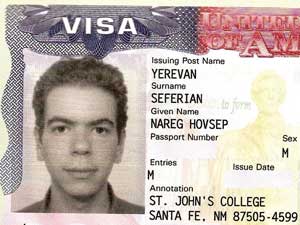What’s it like saying goodbye to your friends from high school?
I never thought about this, but now I feel like it is one the hardest questions that I am answering. I can’t believe that it is already the end of the year. It is very sad. I have spent two years of school at Kent, and it is like my home now.
It will be hard to say goodbye for my friends, but I will never say goodbye to them, instead I will say see you soon. I guess this way it will make me feel better mentally.
Even though it is sad to leave, I think I am happy to have done my best during these last two years, and I have grown a lot as a student and as a leader. One of the things that I would really miss is the positive attitude of our faculty members, and stuff. At Kent, I can’t even imagine any school being better than them.



 Thanks to those of you who keep submitting terms for our
Thanks to those of you who keep submitting terms for our 



 Kanyakrit (Yu)
Kanyakrit (Yu) Why You Will Gain 10 Pounds in America (and How to Lose it Again)
Why You Will Gain 10 Pounds in America (and How to Lose it Again) Financial Aid Tips from Admissions Officers
Financial Aid Tips from Admissions Officers How I Made Myself a Good Candidate for US Admissions (and Other Advice from a Successful Applicant)
How I Made Myself a Good Candidate for US Admissions (and Other Advice from a Successful Applicant) What Does it Mean to "Be American" as a Chinese Student?
What Does it Mean to "Be American" as a Chinese Student? Staying Safe: A Story No One Should Have to Tell
Staying Safe: A Story No One Should Have to Tell Disability, Difference and Left-handedness in China and America
Disability, Difference and Left-handedness in China and America Student Visa Tips From Visa Officers
Student Visa Tips From Visa Officers Don't Study in the US: A Look at the Pros and Cons
Don't Study in the US: A Look at the Pros and Cons On Being an African in the US: Navigating an Endless Set of Stereotypes
On Being an African in the US: Navigating an Endless Set of Stereotypes First Steps: What to Do if You Want to Study in the US
First Steps: What to Do if You Want to Study in the US Top 5 Ways Academics in the US Are Different
Top 5 Ways Academics in the US Are Different